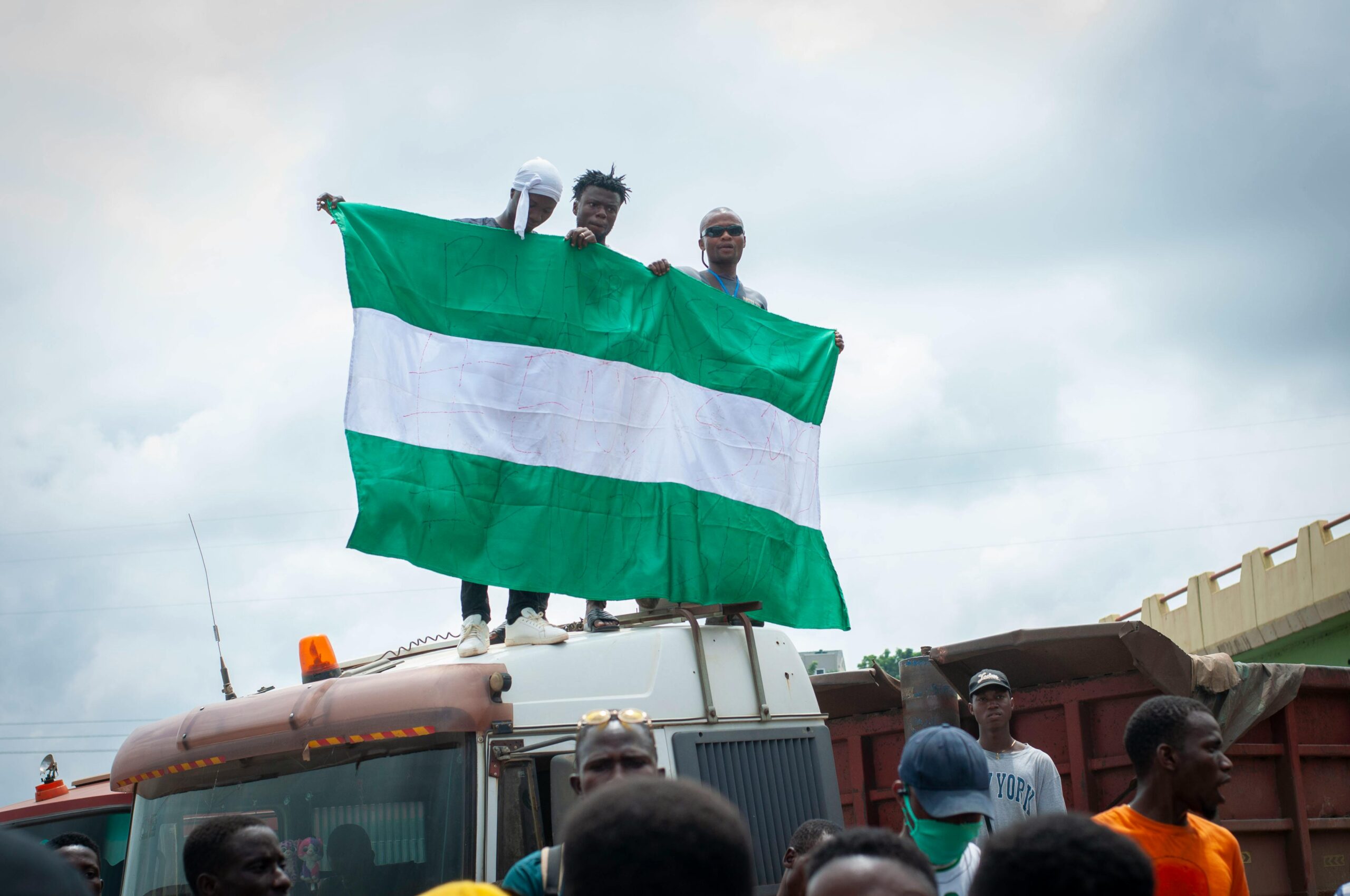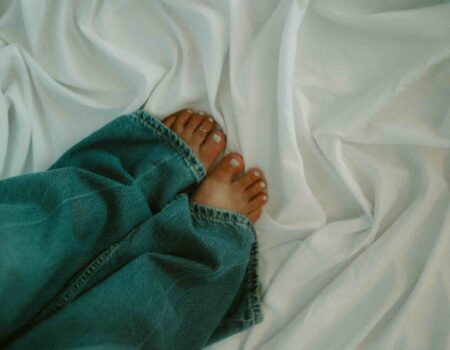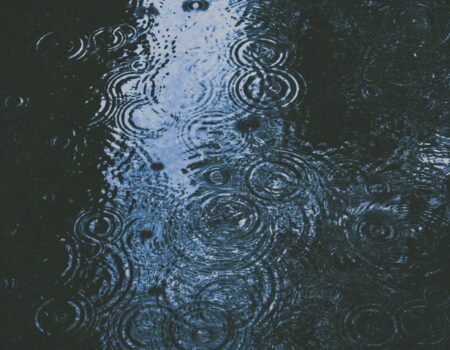1
I’m standing in the middle of the crowd with my phone pointed toward the stage, recording one of my favorite artists in the world as he sings my favorite song and I sing along. I’m filled with the moment, feeling the vibrations of the people all around me, the music coursing through us till we’re one big gyration of sound and melody, alive and thrilled to be alive, just like one year ago at an earlier version of this same concert. It’s amazing how much difference a year makes. Around this same time last year, among every other emotion coursing through me as this artist sang this same song, I remember feeling hopeful, a victim of the optimism which had been sweeping over my country for the past couple of months despite the renewed hardship most of us faced in our daily lives.
There was hope for the future, hope for the possibility of a country that would finally work for us and work through us, hope that a nation with a seventy percent youthful population would start to do right by its present and future generations. One year later and that hope is missing. The light of optimism flickers faintly in our eyes. A concert today, a party tomorrow, a rave next Tuesday – the music has become a temporary respite as we gyrate for our lives, moving to a rhythm that is indigenous to us and has made us famous throughout the world. I dance because I must dance, because I am commanded to dance not just by acoustic forces but economic forces as well. If I do not dance then I shall weep, and Afrobeats is honestly not great music to cry to.
The aspect of music I like the most is its timelessness; how I can listen to a song I adore and I’m transported back to the first time I heard it or my favorite memory attached to it. I believe in living in the moment while also capturing it for posterity sake because at the end of the day, memories may fade and feelings change, but only the rise of an AI-robot army can prevent Snapchat from saving that video I made to the cloud. One day, that video might be all I have to remember that I too was here, that I screamed from the rafters and stood in the crowd and partied all night while the loudspeakers threatened to separate me from my soul. One day it might be all I have to remember how I queued in the scorching sun for hours, waiting to perform my civic duty and cast my vote for my preferred presidential candidate.
2
I’m recording myself singing along to “Loyalty” by Blaqbonez and I’m reminded again how the more things change the more they remain exactly the same. Somewhere in my phone’s gallery is a similar video I made to this same song during last year’s edition of this same concert. I remember my excitement while making the original video. The atmosphere had been filled with the sweat from moist bodies, joy, youth and possibility, even if I lacked the words to describe it back then. Ten hours later, I would be at Tafawa Balewa Square, attending my first ever political rally, waiting in the blinding sun for the party’s flag bearer as he made his first campaign visit to Lagos, an event I had looked forward to just as much as the Concert. Sandwiched among the throbbing crowd as it thronged forward to the podium, hoping to capture an eternal glimpse of the man who had captured our imaginations over the course of the campaign season, gladness danced in my heart and I felt the touch of hope’s fleeting fingers. Rivulets of sweat poured from the crown of my head to the heels of my aching feet but for a moment, it felt like I had walked into optimism’s tender embrace, fueled by a unity of progress, togetherness and nation building. My country could be great again, we just had to fight for it; fight with our voices on the streets and on the internet. Fight by standing as one unit. Fight with our votes.
My political awakening began in my mid-teens, somewhere between my final years in secondary school and the period before my freshman year in University. Studying subjects like government, commerce, economics and literature-in-English opened my eyes to the reality of my existence, to the consciousness of how the concepts in my textbooks affected me directly as a person living in that day and age. Prior to then, life could have been a work of fiction or a fast paced thriller for all I cared. I was reading five novels a week and consuming movies as quickly as I could get my hands on the CDs. I was locked into a limitless imaginary world and the only laws that concerned me were its own. But in my mid-teens I began to understand the reason for having three independent arms of government, the intricacies of demand and supply, the fuss over the rate at which the naira exchanged to the dollar, and the reason why writers and artists throughout history have spoken truth to power at a great personal cost when they could have easily looked the other way. With great power comes an even greater responsibility, the political awakening of my teens taught me that as much as Spiderman did. The man with a voice must use it and the one with a vote must exercise it, anything less is an injustice bordering on cowardice.
3
During an earlier performance by one of the many upcoming musicians before Blaqbonez came on stage, I bonded with the guy to my right as we moved our feet and nodded along to the lyrics and melody that reminded us of another one of our favorite, controversial artists. I would later learn that the guy beside me was a producer, looking for the exact type of sound we had just enjoyed, a sound he assured me was the future of the Afrobeats movement. Earlier that night at the concert I had recognized one of my favorite poets from Twitter, then a music executive, one or two actors and film people, a popular influencer, a writer like me but way more established, and even a young politician who had contested his party’s local primaries. One year after the original concert on the night of the rally, one year after the actual elections; I’m recording Blaqbonez’s performance and I look around the crowd and can only imagine how many more producers, writers, doctors, lawyers, engineers and politicians are scattered among us. I’m surrounded by all this talent and I can’t help but feel a hopelessness; a despair for my youth misspent in a country which refuses to work for me, an anguish over the wastage of talent and opportunity and it hurts me deeply as I bellow along to the familiar lyrics which have enchanted me for over a year.
A wise man once said music needs no permission to permeate the spirit, it needs no approval to tickle your fancy or titillate the senses. We don’t get to choose how songs will make us feel. All the songs I have loved in my life are as different as night and day, their very composition might be appealing to me and me alone but isn’t that the beauty of life on this glamorous musical rock? Especially in a place like Lagos where rhythm can be found in everything from the buzzing of the wires attached to the poles that distribute electricity to the loud, abrasive humming of a thousand and one generators, procured to fill the gap left by the failure of the electricity generation and distribution authorities. Rhythm is rhythm, I grew up on the noise of generators permeating the atmosphere until their steady drone becomes one and the same with other natural melodies like the singing of birds and the yawning of the sky. The droning has become indistinguishable from other aspects of everyday life and sometimes when it gets too quiet I peek through my curtains to ensure nothing is amiss. This is no way to live but it is my life, a life of music and potential, a life of rhythm and yearning, ultimately a life of mourning, of grief over a potential my country might never realize.
Afrobeats does not augur well with messages of sadness or mourning. Even songs centered around depression and suicide are hard not to dance to when they’re blasted out loud, running at 140 to 177 beats per minute and there’s no choice but to forget about the day’s worries and sway to the healing power of the rhythm. But for how long can I dance and sing along while the country of my childhood and my youth goes to the dogs? What songs will be played at my nation’s funeral as the pallbearers hoist the coffin to the freshly dug clump of reddish soil, stepping in tune with the organ’s melody. And as they lower it into the earth, what will my generation gyrate to while we stand, grieving our youth wasted in and on a broken country suffering the consequences of eight plus years of poor political and societal choices. A country aching from sixty-three odd years of maladministration and a greed so insidious it borders on the diabolical, a greed so all-consuming I sometimes wonder if this glamorous, musical rock wouldn’t fare much better without its human orchestra.
I am in mourning but I lack an accompanying melody to express my grief for a country that is rigged against me. I am in mourning because I love this place and I want to see it succeed. I want to be part of its success story. I’ve been in survival mode my whole life and now I really just want to thrive. I don’t want to japa, I don’t want to live in another man’s land because I’m chasing prosperity, security and the peace of mind denied to me by my own fatherland. I want to travel the world and eat the food of many nations. I want to listen to their music and make memories with their women and dip my feet in their waters and dance in their streets paved with gold. And then I want to come back home. I want to return to my city and tell stories about my experiences navigating the globe. It was Lucius Seneca who said “I am not born for one corner; the whole world is my native land” and I love this statement, truly, but what happens when that corner which is supposed to be mine is hell bent on ruining my one life? What does it mean when the leaders of tomorrow are being led astray by the leaders of the past? It means I have to run, just like so many others before me but the truth is we cannot all run away, leaving the music and the rhythm of our lives behind for the vultures to devour. The truth is I don’t want to run, it’s just not who I am. So I wallow in the throes of grief, engulfed in despair as I mourn the passage of time and season, as I mourn the loss of human potential, as I gyrate despite the chaos which has plagued my country for as long as I can remember.
I am tired but I must survive, for myself and my generation, I must survive. I must overcome the noise and lift my head to the sky, listening intently for the faintest sounds of sweet music playing amidst the darkness. I must sing and dance and vote and write and bleed and dance some more, until my future is securely within my control. Until my country is free.
4
Blaqbonez rounds up his performance. It’ll be dawn in less than two hours and the crowd starts to thin, phones out, people hustling to book the first few cabs out of the park. Some to prepare for church and the good Christian music coming with it, others headed to a different kind of melody, the quavering of ecstasy leading to the crescendo of release. A lot of us remain behind, just chilling, enjoying the cool morning air with the DJ keeping us company while the concert packs up. Vendors shut down their stalls as last minute connections are made; promises to meet again exchanged in whispers sealed with a handshake, hug or kiss on the lips. The music will always bring us back together, one way or the other, and though we might mourn today and grieve tomorrow, hope keeps us dancing along, moving to the beats and rhythm of our country’s funeral song.
Great Opara
Great Opara is a Nigerian screenwriter, director and culture journalist whose fiction and non-fiction work chronicles the human condition through the lens of lifestyle, culture and entertainment, while addressing the existential angst of being alive in these times. His words have appeared in Native Mag, the International Journalists' Network, the Kalahari Review, Bella Naija and others. On X, he’s @lifeofog_, and on Instgram, he’s@lifeofog_.




